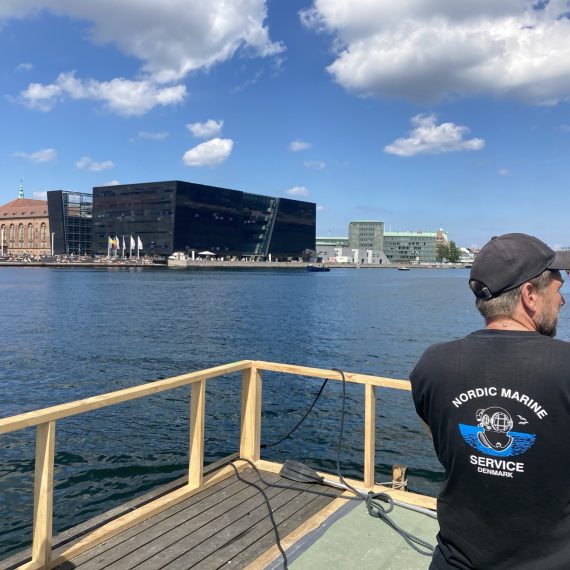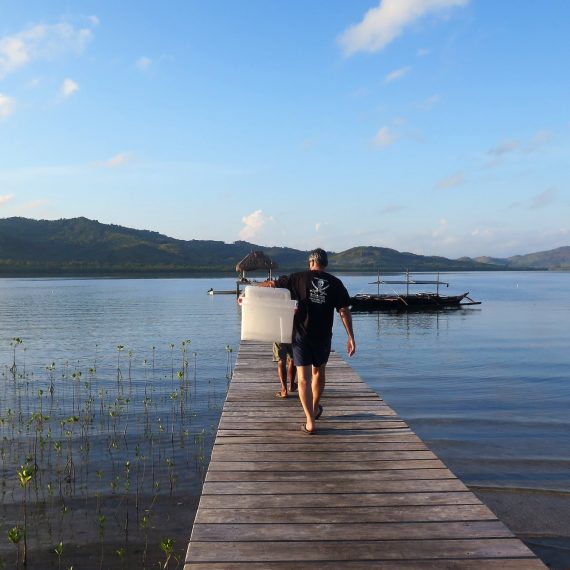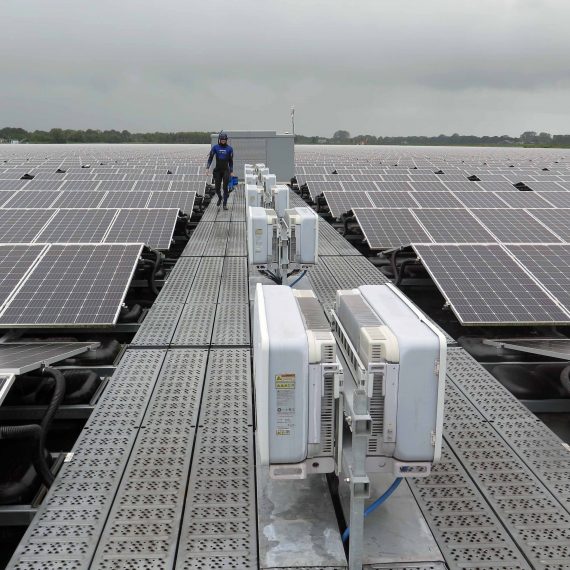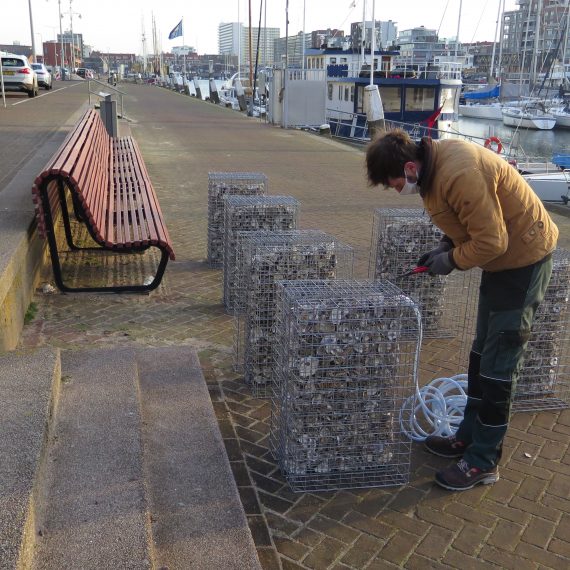Madafia Project – Madagascar
Projet Madafia © Gilles Lecaillon
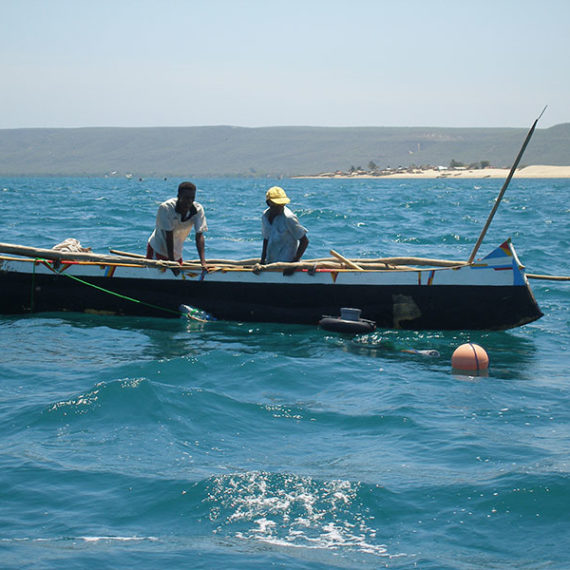
Projet Madafia © Remy Dubas
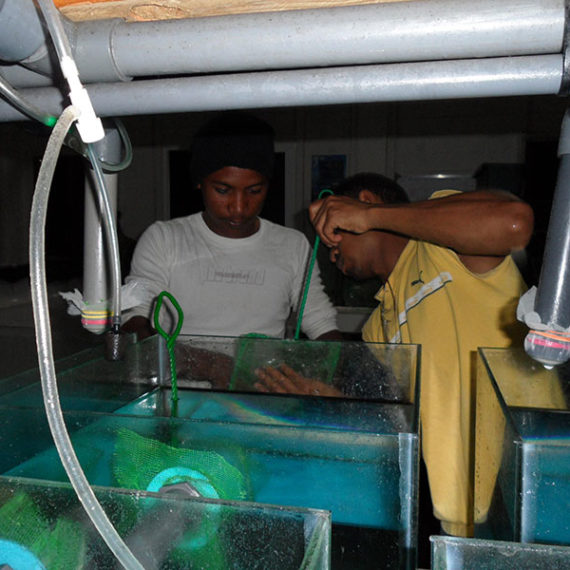
MADAFIA © Remy Dubas ECOCEAN
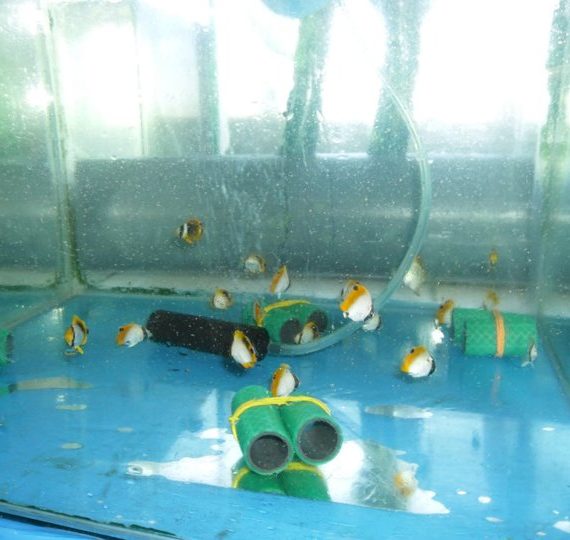
MADAFIA © Remy Dubas ECOCEAN
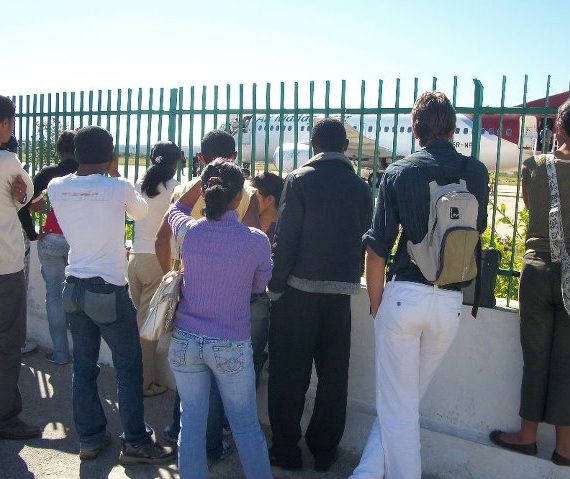
Context
Following a pre-feasibility study for the PCC performed in Madagascar, IRD, ARDA, ECOCEAN along with IHSM (Institute of Fisheries and Marine Science) and the fisheries Ministry came together to realize a full study to evaluate the possibility to export sustainable collected fish to Europe for the marine aquarium fish trade from Madagascar to France. Local fishing communities benefited from this project that represented an alternative to overfishing and a source of funding for the fishermen involved.
Interests & objectives
The MADAFIA project (« fia » meaning fish in Madagascar) had the following objectives:
1-Transfer the knowhow of PCC to technicians from INRH
2-Design and build a farm facility enable to grow fish to a commercial size.
3-Study of potential market (aquariology, aquaculture) to be developed from Tuléar.
4- Export fish to France This two years study provided an estimation of the feasibility and benefits for local communities. In addition, the study brought new information that enhanced knowledge about local fisheries (diversity, abundance, period of recruitment for local species).
Impacts & results
Thanks to the project, three local students have received training and are now able to perform and manage the PCC technique. Although one successful fish exportation at the end of the project to the NAUSICAA aquarium in France, the administrative services didn’t authorize IHSM to export more fish. The project moves forward with scientific purposes.
Deliverables
700 fish exported (<1% mortality arrival) at
NAUSICAA (Boulogne/Mer)
1 farm operational with filtration systems 2 Poster presentation at WIOMSA 2009 (île de la Reunion, France)
2 Posters presentation at WIOSMA 2011 (île de la Reunion, France)
1 Poster presentation at FISH CONFERENCE 2015 (Oman, Mascat)
Téléchargement
A feasibility study for PCC implementation in Madagascar.
Following a pre feasibility study for PCC that took place in 2009 in Tuléar by IRD, ARDA, Ecocean and with the collaboration of the the Fishery Institute for Marine Science (IHSM), the Ministry of Fisheries of Madagascar has accepted to fund a project to precisely define the opportunities to export post larval fish to France for the marine aquarium trade market. The ultimate goal was to offer local fishing communities an alternative method for overfishing and indemnify them with the implementation of marine protected areas.
Thanks to the project, three local students have received training and now know how to perform and manage the PCC technique. The project ended with one successful fish exportation to the NAUSICAA aquarium in north of France.

